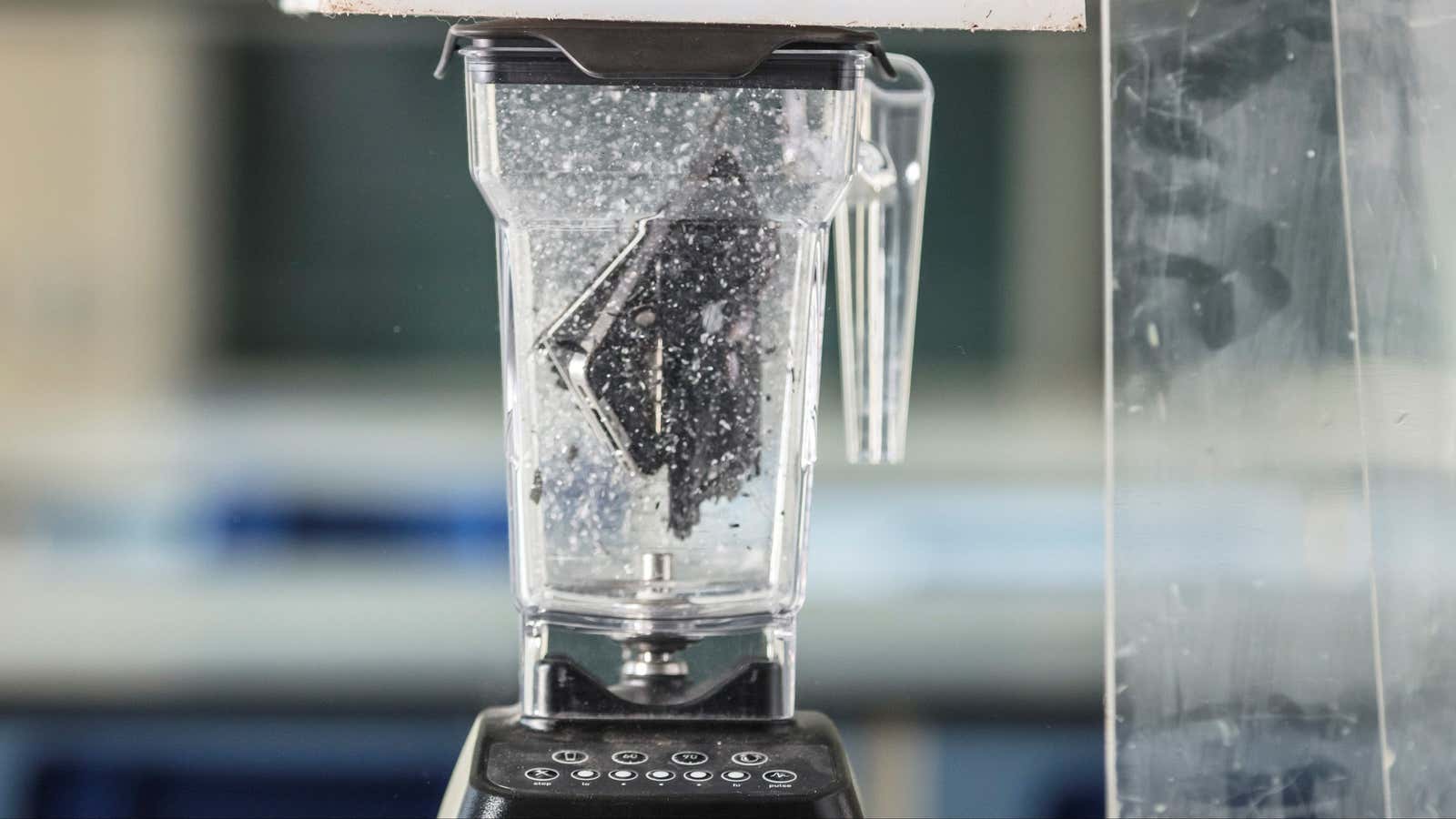In a recently-published video, geology lecturer Arjan Dijkstra dons a white lab coat and a protective face shield, drops an iPhone 4S into a blender, and pulverizes it. Dijkstra wasn’t taking out his frustration on his phone in a culinary setting—the act of destruction was all in the name of raising public awareness.
Dijkstra and fellow University of Plymouth geology lecturer Colin Wilkins want to document and bring attention to the amount of raw material in our smartphones, including conflict minerals—metals that are often traded or sold to finance armed groups in conflict zones. Smartphone makers like Apple provide a broad outline (pdf) of what metals the company uses, but not the exact makeup of the components in phones and tablets.
The goal of the experiment was to “show everybody just how much of these materials are used in what is quite a small item—that we put into our pockets,” Wilkins says.
After decimating the iPhone, the two scientists separated its remains into several petri dishes. A small mound of fine powder residue was then mixed with sodium peroxide at a scorching hot temperature of nearly 500˚C (932˚F) to study the chemical composition of the smartphone.
The results indicated the iPhone contained a fair amount of base metals, including an estimated 33 grams (1.1 oz) of iron, 6 grams of copper, 2.7 grams of nickel, and 0.7 grams of tin. Rare earth metals typically linked to conflict mining, including tungsten (900 mg or 0.03 oz) and cobalt (70 mg) were also detected, as well as small amounts of precious metals like gold and silver.
The researchers concluded that a hefty 10 to 15 kilograms (22 to 33 lbs) of ore, which minerals are extracted from, would need to be mined to produce a single smartphone.
Experiments deconstructing the contents of phones have been done before, and the geology lecturers admit they made the video to grab attention—even hiring a creative agency to help. They hope the slick film will be a useful reminder of the environmental and humanitarian toll of the world’s smartphone frenzy. “If we consider that we’re making 1.4 billion phones a year, then the consequences of not making an effort to recycle some or all of that metal are very significant,” Wilkins says.
The blender experiment comes a month after Apple filed its 2018 Conflict Minerals Report with the SEC, saying it remains committed to sourcing minerals that do not fuel armed conflict or aid those groups. But NGO reports have cast doubt on the effectiveness of efforts by companies that make electronics, electric vehicles, and phones to curb the use of minerals and metals linked to rights violations. “Apple is the industry leader for responsible cobalt sourcing—but the bar is low,” Amnesty said in 2017.
The issue has not been an easy one for the tech giant to grapple with. In 2010, a consumer emailed Apple founder Steve Jobs about the company’s efforts at sourcing conflict-free minerals, according to The Daily Beast. “We require all our suppliers to certify in writing that they use conflict [free] materials,” Jobs responded. “But honestly there is no way for them to be sure. Until someone invents a way to chemically trace minerals from the source mine, it’s a very difficult problem.”
